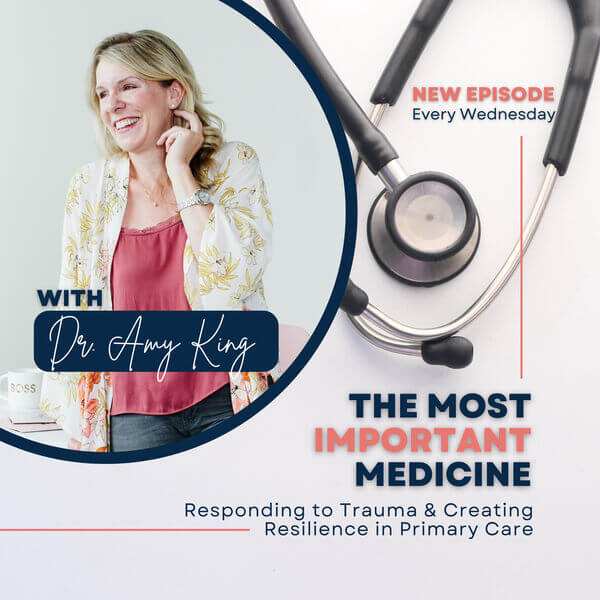Episode 13: Balancing Tolerance with Impatience: A Conversation with Bruce Perry, MD, PhD
Friends – join me for a discussion with Dr. Bruce Perry where we talk about all-things trauma, relationships, meaningful medicine, how to begin tough conversations and the importance of this work.
Dr. Perry is the Principal of the Neurosequential Network, Senior Fellow of The ChildTrauma Academy and a Professor (Adjunct) in the Departments of Psychiatry and Behavioral Sciences at the Feinberg School of Medicine at Northwestern University in Chicago and the School of Allied Health, College of Science, Health and Engineering, La Trobe University, Melbourne, Victoria Australia.
Over the last thirty years, Dr. Perry has been an active teacher, clinician and researcher in children’s mental health and the neurosciences holding a variety of academic positions. His work on the impact of abuse, neglect and trauma on the developing brain has impacted clinical practice, programs and policy across the world. Dr. Perry is the author, with Maia Szalavitz, of The Boy Who Was Raised As A Dog, a bestselling book based on his work with maltreated children and Born For Love: Why Empathy is Essential and Endangered. Dr. Perry’s most recent book, What Happened to You? Conversations on Trauma, Resilience, and Healing, co-authored with Oprah Winfrey, was released in 2021.
Dr. Perry has conducted both basic neuroscience and clinical research. His neuroscience research has examined the effects of prenatal drug exposure on brain development, the neurobiology of human neuropsychiatric disorders, the neurophysiology of traumatic life events and basic mechanisms related to the development of neurotransmitter receptors in the brain. His clinical research and practice has focused on high-risk children. This work has examined the cognitive, behavioral, emotional, social, and physiological effects of neglect and trauma in children, adolescents and adults. This work has been instrumental in describing how childhood experiences, including neglect and traumatic stress, change the biology of the brain – and, thereby, the health of the child.
His clinical research over the last twenty years has been focused on integrating emerging principles of developmental neuroscience into clinical practice. This work has resulted in the development of innovative clinical practices and programs working with maltreated and traumatized children, most prominently the Neurosequential Model©, a developmentally sensitive, neurobiology-informed approach to clinical work (NMT), education (NME) and caregiving (NMC).
RESOURCES
FREE DOWNLOADS
Provider Lounge Virtual Meeting Freebie
Start Creating Boundaries Handout & Script
Guide To Creating Cultures of Trust At Work
Don’t Forget! Follow Dr. Amy on LinkedIn, Facebook, and Instagram
For more information visit www.doctoramyllc.com
































